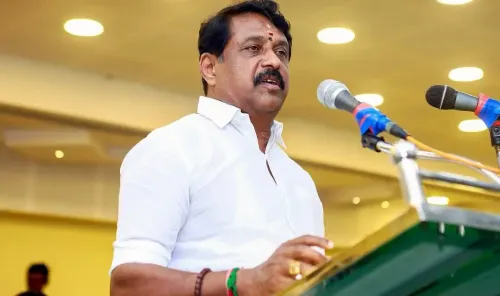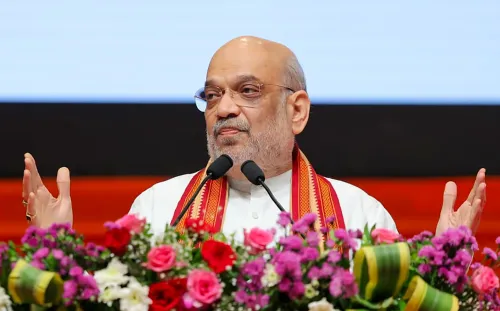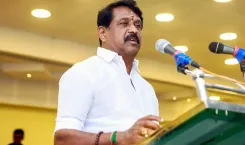Why are Lawyers Opposing M.A. Saleem's Appointment as In-Charge DG & IGP?

Synopsis
Key Takeaways
- M.A. Saleem's appointment as in-charge DG & IGP is contested by lawyers.
- The lawyers cite violations of Supreme Court directives.
- Legal action may be initiated if the government fails to act.
- The representation was submitted to both state and UPSC authorities.
- The need for transparency in police appointments is highlighted.
Bengaluru, May 26 (NationPress) A group of lawyers has formally raised objections with the Karnataka government regarding the appointment of M.A. Saleem as the acting state police chief.
The lawyers have cautioned that if the authorities do not address their concerns within seven days, they may consider initiating legal action, including a writ petition or a contempt petition.
This representation was presented by advocates Umapathi S, Sudha Katwa, and Akhil Babu on Monday. Additionally, they have also submitted their concerns to the Union Public Service Commission (UPSC). The delegation emphasized that their actions are aimed at preserving the rule of law, public accountability, and the integrity of police leadership in Karnataka.
“A formal representation was delivered to the relevant authorities, including the Chief Secretary, Additional Chief Secretary (Home), Principal Secretary (Department of Personnel Administration and Reforms), and the Secretary of the UPSC, regarding the recent appointment of M.A. Saleem as the 'in-charge' Director General and Inspector General of Police (DG & IGP) in Karnataka,” stated advocate Umapathi.
The representation underscores that this appointment clearly violates the binding directives established by the Supreme Court of India in the Prakash Singh case and subsequent rulings, according to Umapathi.
The Supreme Court has explicitly prohibited the appointment of 'acting' or 'in-charge' DGPs, except under rare and exceptional circumstances, mandating a transparent, merit-based selection process from a panel recommended by the UPSC, added Advocate Umapathi.
It has been alleged that the Karnataka government has disregarded the necessary procedures, including failing to send a panel of eligible officers to the UPSC, ensuring a minimum tenure of two years, and providing justifiable reasons for an ad hoc appointment. Such non-compliance is viewed as a breach of the Constitution and the rule of law, according to advocate Sudha Katwa.
The representation requests the immediate retraction of Saleem's appointment as 'in-charge' IG and DGP, the initiation of a regular appointment process in strict adherence to the Supreme Court's guidelines, and the submission of a compliance report to the Supreme Court.
The memorandum warns that any future ad hoc or in-charge appointments for the positions of IG and DGP should be avoided unless justified under exceptional circumstances. If the authorities do not comply within seven days, legal proceedings, including a writ petition or contempt petition, may commence.
The Karnataka government appointed senior IPS officer M. A. Saleem as the acting Director General (DG) and Inspector General of Police (IGP) on May 21.
Saleem currently serves as the Director General of Police (DGP) for the Criminal Investigation Department (CID), Special Units, and Economic Offences in Bengaluru.
A government order stated that Saleem will concurrently hold the position of Head of the Police Forces in Karnataka State from the afternoon of May 21 until further notice.
Alok Mohan, the former Director General and Inspector General of Police, retired from service on May 21. Saleem is anticipated to be confirmed as the full-time state police chief in two months.









